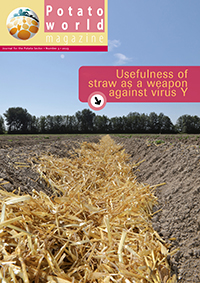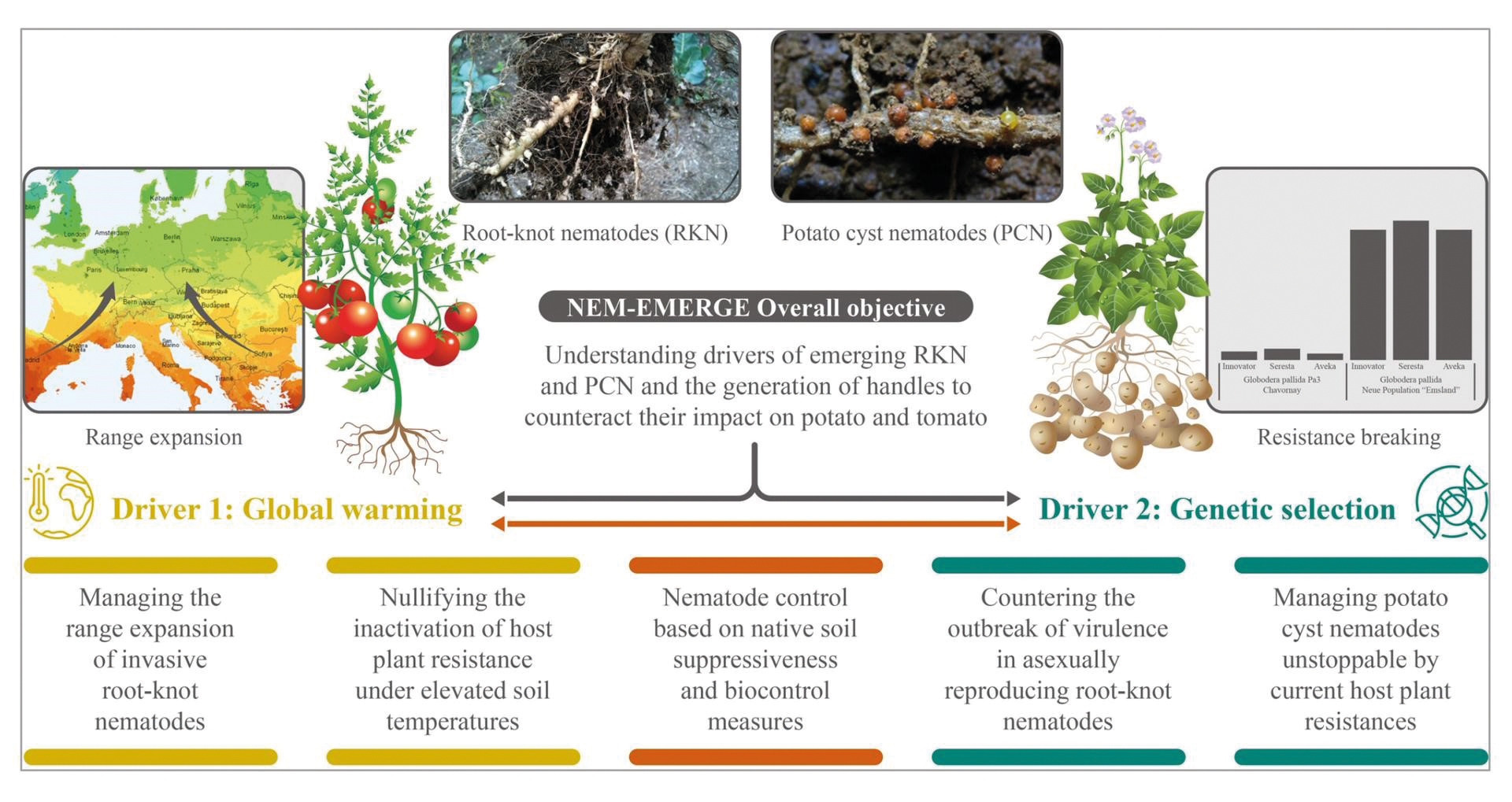Already a subscriber? Activate your premium account

Potatoworld Magazine

Climate change and genetic selection have brought root-knot nematodes further north in Europe and made cyst nematodes more difficult to control. To get a clear picture of the proliferation of novel nematode species and populations and to find appropriate and sustainable solutions to these problems, Wageningen University & Research (WUR) is launching a major research and innovation project with seventeen European partners called NEM-EMERGE. The project has been accepted as a Horizon Europe Project, resulting in 7 million euros in funding.
Root-knot and cyst nematodes form a grievous threat to potatoes. Researcher Hans Helder explains how nematodes work. ‘They drain energy from the plant, causing a plant condition referred to as ‘fatigue’. As a result, the crop barely grows and is severely weakened leading to crop loss and hence economic damage. Annually, root-knot nematodes alone cause yield losses of several billion euros. Next to crop rotation and resistant varieties, growers currently use broad-spectrum chemicals to control these nematodes which have unwanted negative side-effects on nature and the environment.’
Both root-knot nematodes and cyst nematodes are on the rise. According to Helder, climate change is a major cause of this. ‘Due to global warming, our winters are becoming milder. As a result, “tropical” root-knot nematodes are moving further north. Whereas they used to be found only in North Africa and southern Europe, in recent years they have also been observed in central France and halfway across the Balkans. In addition, climate change is affecting soil temperatures. At temperatures of 28 degrees or higher, some important resistance genes of crops no longer work. This line of defence that protects plants against parasites is thereby lost. Besides climate change, genetic selection is another driver that plays a role in the emergence of nematodes. Frequent use of a limited number of resistant crop varieties resulted in the rise of nematodes that are less sensitive to these resistance genes.’
Helder details what the funds in the NEM-EMERGE projectare to be spent on: ‘We are going to investigate the current distribution of root-knot nematodes: From southern Turkey and Spain to northern Germany, we are going to take soil samples about every two to three hundred kilometres to investigate the presence of plant-parasitic nematodes. Based on the resulting picture, modellers can predict where we can expect them in five or 15 years.’
Helders’ colleague Aska Goverse aims to tackle the instability of resistance genes in plants under higher temperatures in one of the other work packages. ‘We have been working on the molecular mechanisms that underly the (mis)functioning of resistance genes for several years. We have a pretty good view of the factors determining their function for some diseases, but not yet for these plant-parasitic nematodes. That makes predicting further developments challenging. Another challenge lies in distinguishing between different populations of parasitic nematodes and determining which ones can still be controlled and which can’t.’
The researchers will work on solutions in close cooperation with end-users. As the use of pesticides is increasingly restricted within the EU, farmers seek alternative methods. Goverse: ‘Growers require knowledge and practical tools to make a transition towards sustainable agriculture. The EU is steering towards integrated crop management, but what tools are needed to reach that goal? How can we for instance boost the soil’s disease-suppressive potential? At the same time, researchers want to know the demands and the conditions for innovation from an end-user’s perspective. The ultimate goal is to develop solutions that can be put into practice.’
There is no single silver bullet solution, Helder warns. ‘We must focus on a wide range of measures, from plant resistances to more hygienic working practices to the stimulation of natural enemies.’ ●
Beschrijving openingsfoto: NEM-EMERGE wants to find appropriate and sustainable solutions to nematodes problems.
Events
©2015 - 2024 Potatoworld | Webdesign and realisation COMMPRO